What to Consider in Advance for a Healthy Microclimate in Your Apartment
It may seem that all apartments in standard buildings are the same. However, some people live comfortably while others suffer from the consequences of poor-quality renovation. Find out what you shouldn't forget about, as revealed by professionals.
Good renovation is not only about a well-planned design project but also involves high-quality rough and finishing materials and professionally executed works. What should you pay special attention to in order not to worry about redoing your home for years to come, was explained by the founder of the interior design service Interior Box.
Olga Kulikovskaya-Eshbi
Designer
Founder of the Interior Box service, offering ready-made solutions for interiors in various styles tailored to specific clients.
1. Sound Insulation of Walls
Even if your neighbors are the best friends, you may not want to share family or household matters with them – let alone strangers. Good sound insulation is essential for you: in addition to external and shared walls, we recommend soundproofing the children's room and bathroom for greater comfort.
The most simple and effective way to protect against noise is using multi-layer framed structures from "Saint Gobain", consisting of Gyproc gypsum board, Gyproc-Ультра metal profile, and ISOVER Quiet Home sound insulation mat inside. This method not only offers better protection from noise but also makes the partition much thinner than a brick wall – increasing room area. You need not worry about ecological safety: the sound insulation material is made from natural components, thus completely safe for health.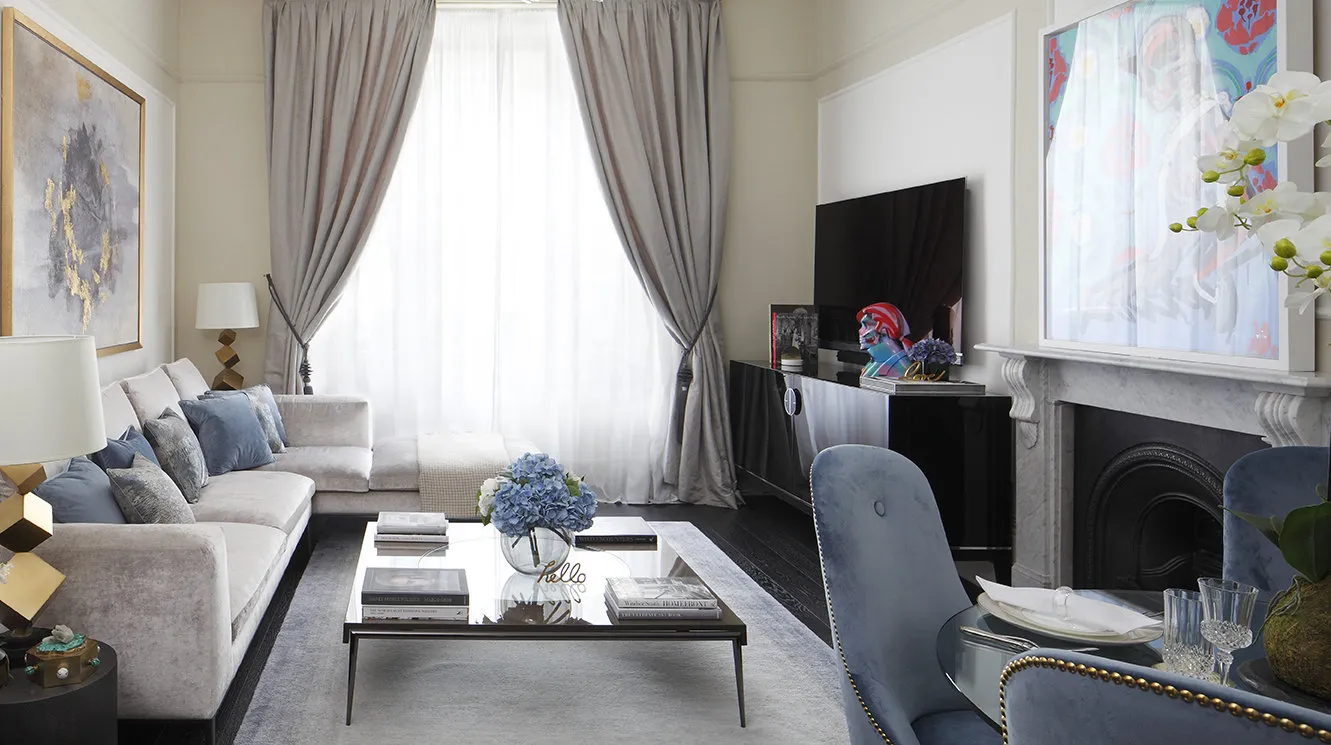
2. Bathroom Waterproofing
I think you've heard sad stories of when residents in newly renovated apartments flooded their neighbors from below. To prevent this from happening to you, install leak sensors and check the waterproofing.
With modern materials, even a schoolchild can handle this task: two layers of two-component weber.tec 822 waterproofing are applied one over another and differ in color – it's nearly impossible to miss unisolated areas. For additional sealing of wall joints and seams, use weber.tec 828 DB 75 insulation tape.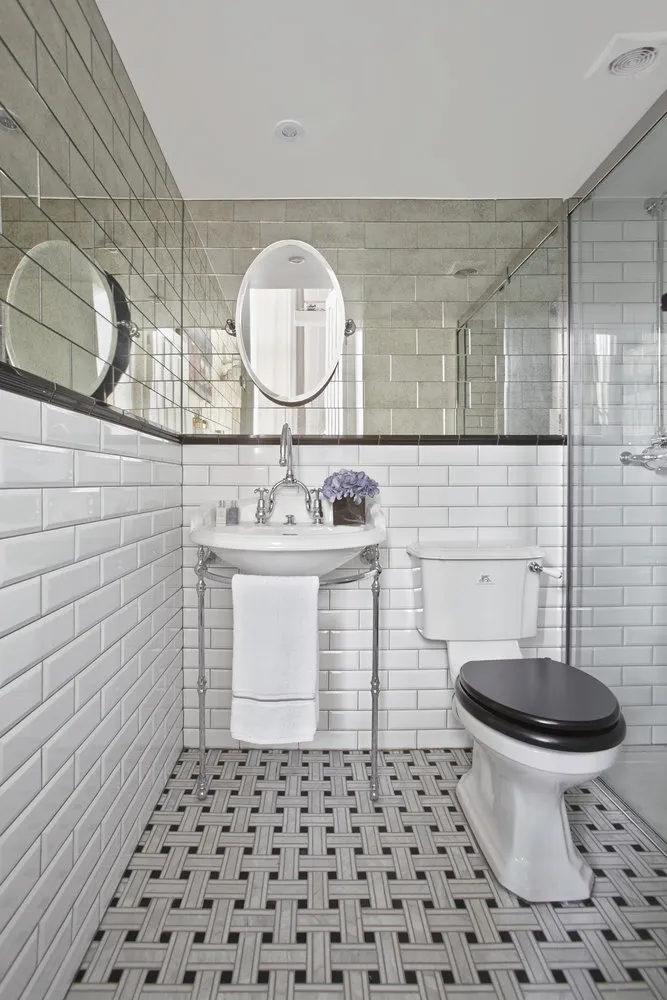
3. High-Quality Floor Screed
Iron battens and squeaky parquet – things of the past. Today, attention is paid to the flatness of the floor screed: regardless of whether you're laying laminate, parquet, or tiles, the floor must be perfectly flat. Nailing floor weber.vetonit 4350 has never let us down: it sets quickly and is suitable for radiant floor systems, which we can no longer imagine a comfortable interior without.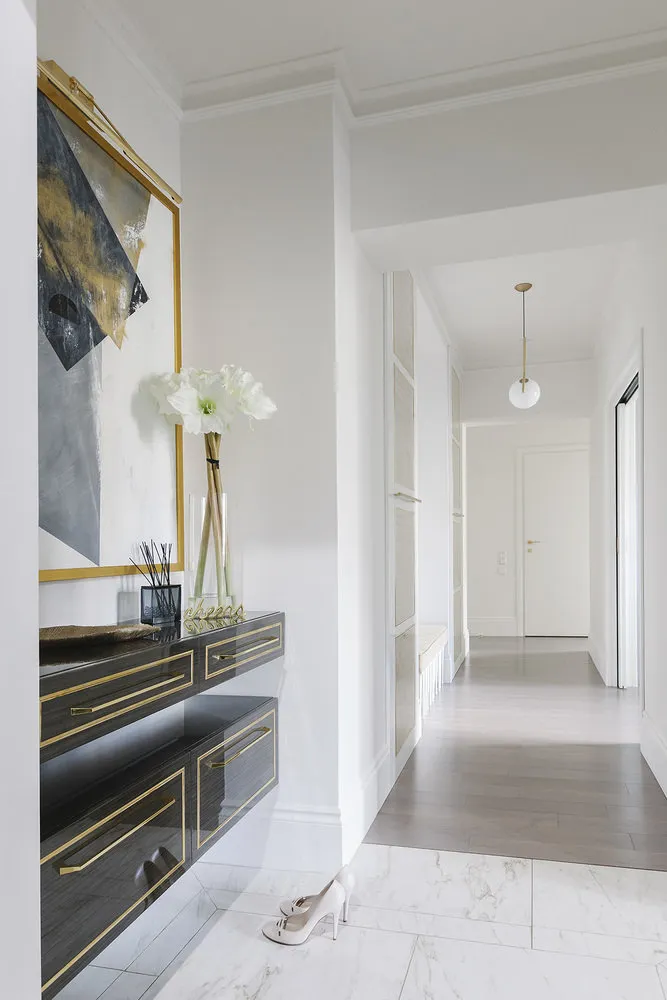
4. Ceiling Finishing
Eight-layer waves on ceilings are a thing of the 90s – meaning no more distractions from ceiling irregularities.
Pay attention to how contractors treat gaps between gypsum board sheets: they should be filled with special plastic plaster using paper tape. Then, ceilings are spackled with the main layer, covered with glass cloth to prevent cracks, and finished with a top coat.
5. Ventilation and Air Conditioning
Ventilation is one of the key conditions for health and productivity. Here, a climate control system will come in handy: it allows maintaining temperature, humidity, and circulation of fresh air from inside and outside the room. Installation of such systems should be planned in advance, and all heating units, air conditioners, and forced ventilation systems should be equipped with special drives and sensors. Sounds complicated, but such a system guarantees a healthy microclimate.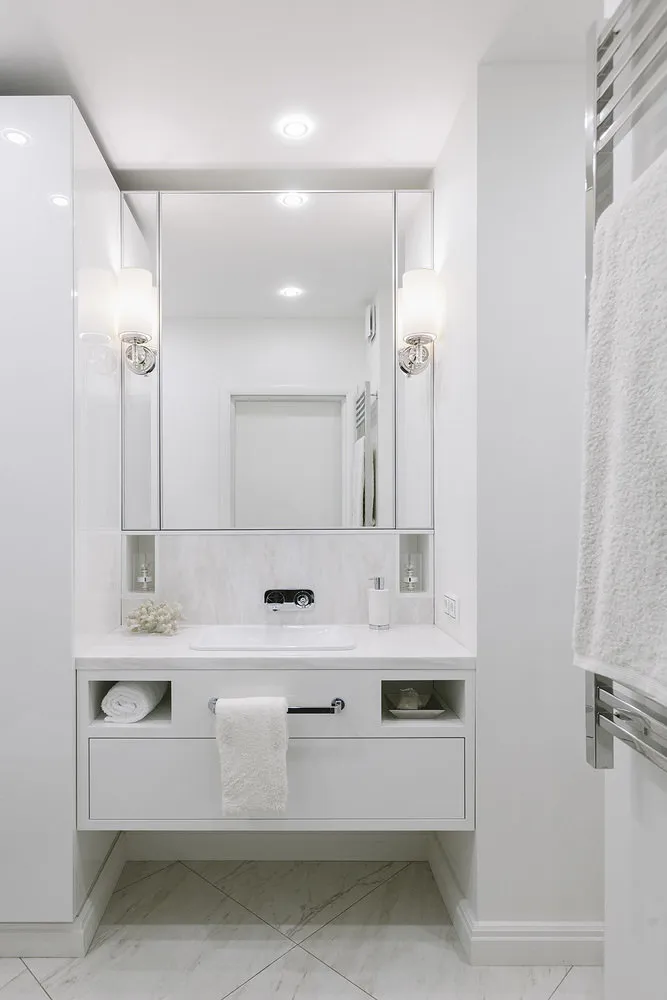
6. Wall Finishing
Abandon synthetic wallpapers in favor of more eco-friendly and natural paint. But don't skimp on surface leveling works: only properly prepared walls won't crack or suffer from condensation.
Plastering with guides ensures correct wall geometry (here, weber.vetonit profi gyps is useful).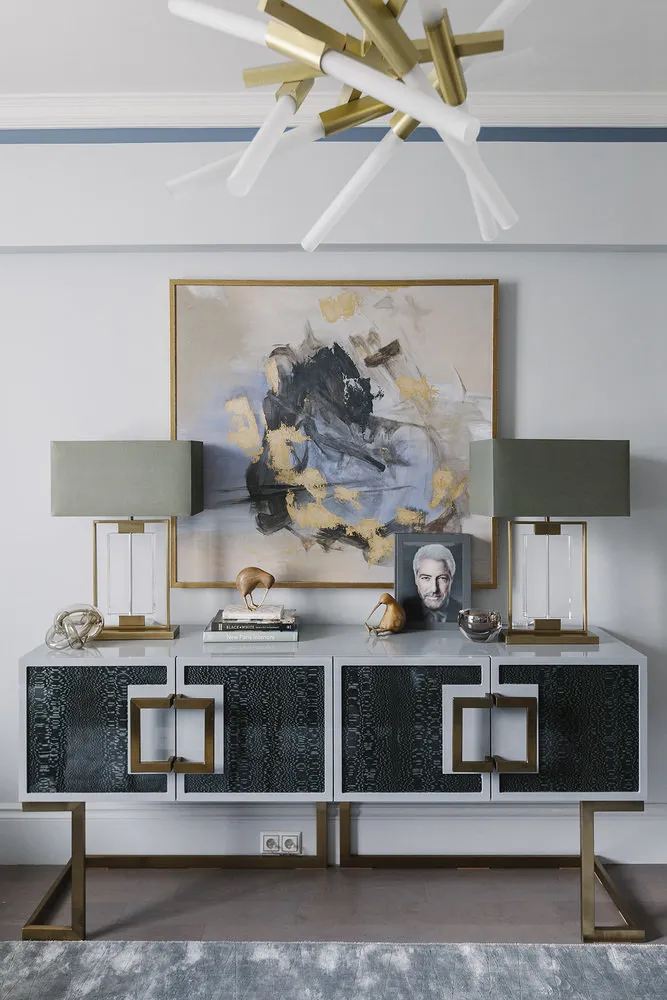
Additional 3 Tips from the Expert
Creating and maintaining a healthy indoor microclimate depends on many factors: quality of construction and finishing materials, hardware, and their proper use. Together with the expert, we discuss how to make the right choices.
Pavel Gritsin
Expert
Technical Director of "RAUMMASTER" – a service for apartment repairs.
1. Carefully Choose Hardware for Plastic Windows – so you can maintain a good indoor microclimate without opening windows. Modern systems in their configuration include multi-stage ventilation mechanisms: they help regulate the intensity of air intake, eliminate drafts (harmful to both health and finishes), and make micro-ventilation possible during long-term absences. This system also ensures continuous air exchange even in winter and prevents condensation and moisture buildup – thus extending the lifespan of the entire window assembly.
2. Always Check Material Labels – they indicate the possibility of harmful substance release into the environment. For example, ecological properties of construction and finishing materials are confirmed by the EcoMaterial label. Products from eco-producers, including "Saint Gobain", can also be found in the Green Book catalog.
3. Use Gypsum Plaster and Spackle When Possible: This is an environmentally clean material that does not emit harmful substances into the atmosphere during operation and maintains an optimal microclimate in a room. Due to its hygroscopic properties, the material absorbs excess moisture from the air and releases it back when room humidity decreases. Note that gypsum plaster works well only in dry rooms (bedroom, living room, children's room, etc.). In bathrooms and outdoors, gypsum quickly deteriorates.
Photos: Interior Box design projects.
Need a renovation specialist?
Find verified professionals for any repair or construction job. Post your request and get offers from local experts.
You may also like
More articles:
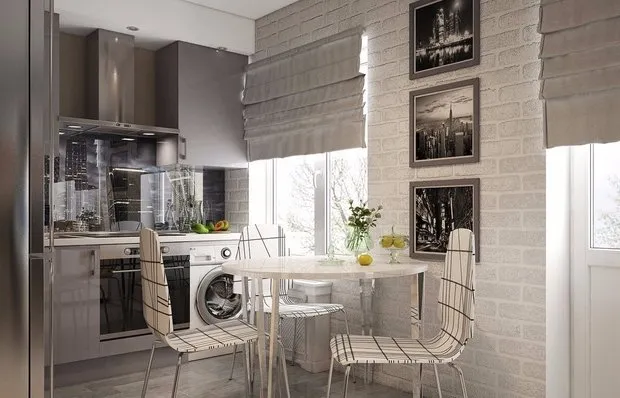 Design of a Two-Room Khrushchyovka with and without Relocation
Design of a Two-Room Khrushchyovka with and without Relocation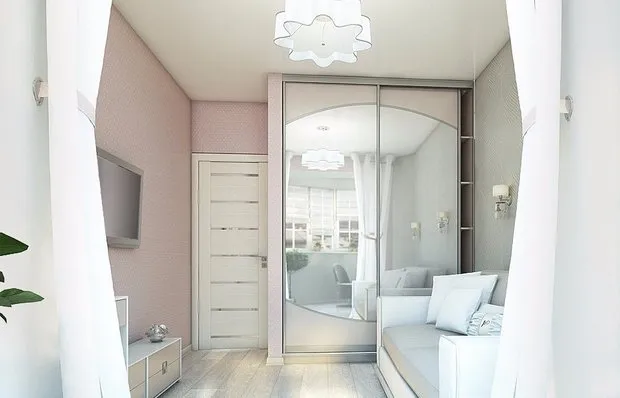 Interior Design for Teen Girl's Room in Modern Style
Interior Design for Teen Girl's Room in Modern Style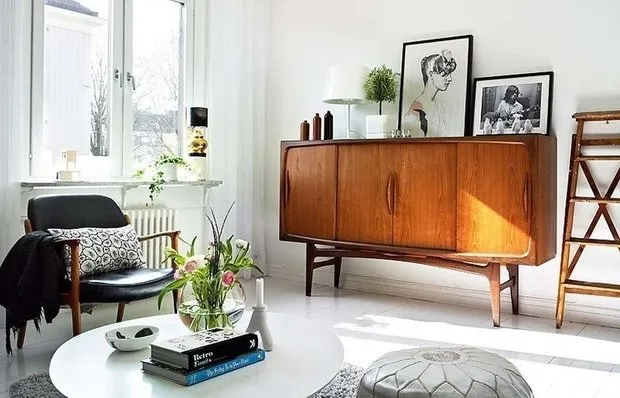 8 Things for Everyone Who Wants to Spend Less Time Cleaning
8 Things for Everyone Who Wants to Spend Less Time Cleaning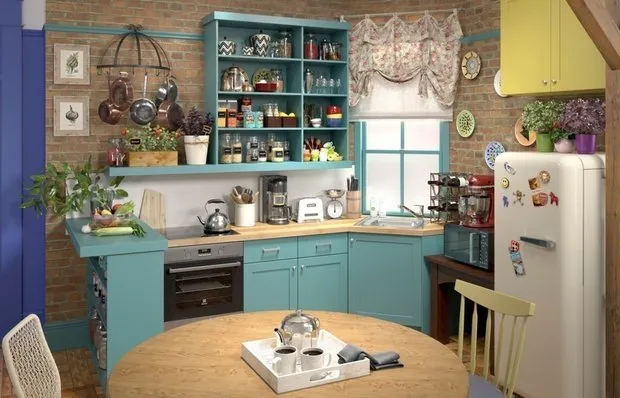 Creating a Kitchen Like in the TV Series 'Friends'
Creating a Kitchen Like in the TV Series 'Friends'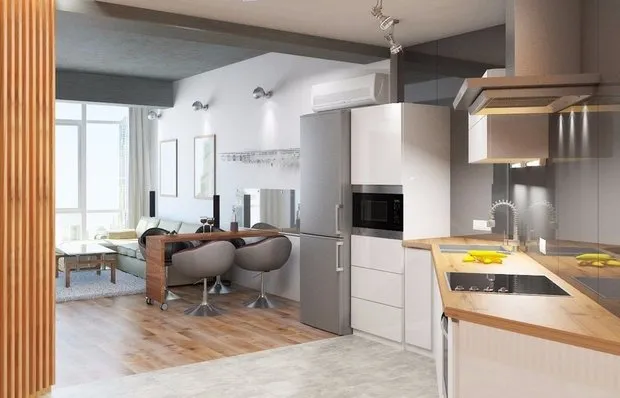 Design of Living Room Combined with Kitchen
Design of Living Room Combined with Kitchen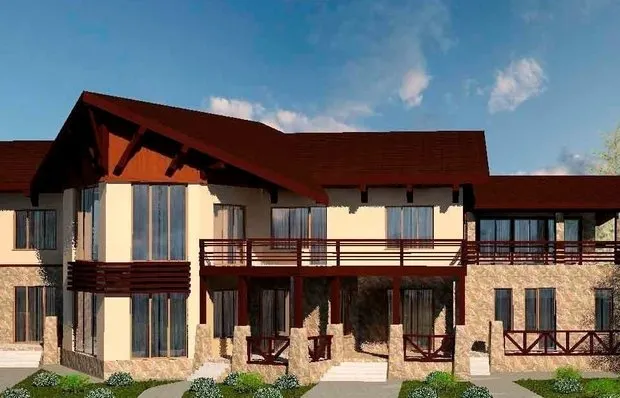 Shale Style in Interior Design
Shale Style in Interior Design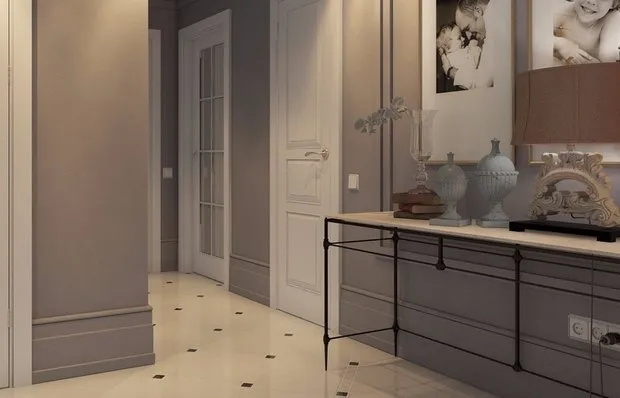 Modern Style Living Room Interior
Modern Style Living Room Interior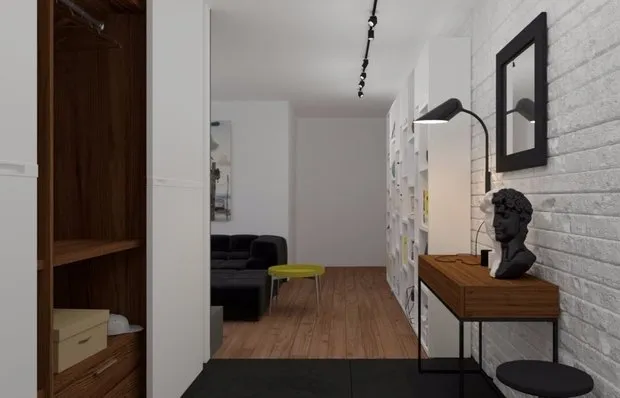 Built-in Wardrobe in the Hallway
Built-in Wardrobe in the Hallway